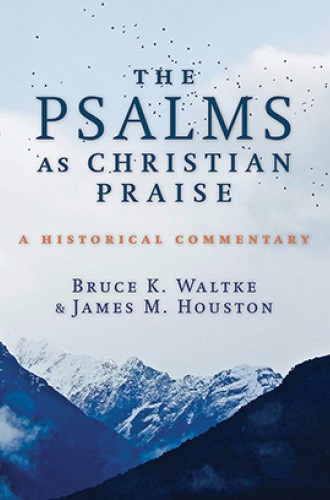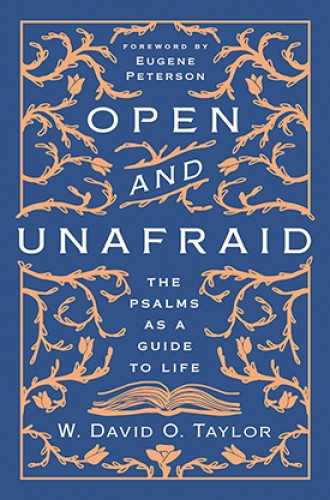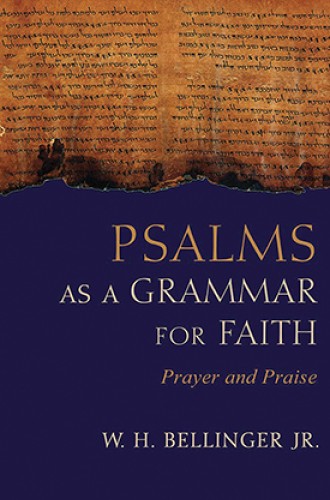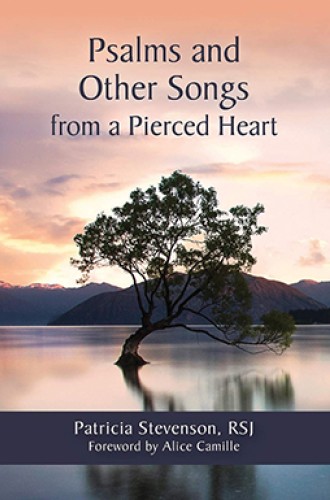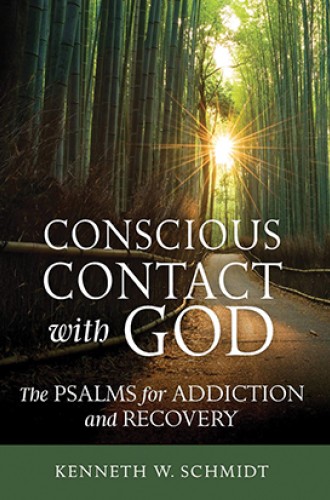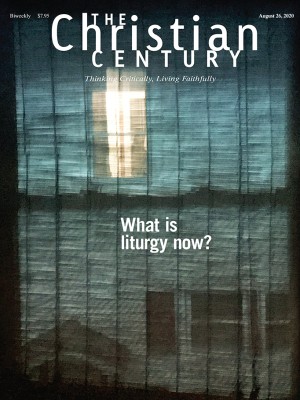What a gift to receive a heap of books on the Psalms in this time when it’s hard to know how to pray. They arrived in the mail just before the pandemic and the world’s shock at American policing practices exploded into view. What could be more pertinent now than Psalm 91’s promise of God’s protection against “the deadly pestilence” (vv. 3, 6)?
Careful though. These promises offer little comfort to the hundreds of thousands who have died or the millions who mourn the disease of white supremacy. In fact, the devil seems particularly to like Psalm 91, quoting it to Jesus in the wilderness (Matt. 4:6; Luke 4:10–11). Satan’s citation is a warning: you will be tempted to think the God of the Bible is a deus ex machina, spectacularly saving you from all harm—and you will be wrong.
Read our latest issue or browse back issues.
How might we read the devil’s favorite psalm differently?
Bruce Waltke and James Houston argue that Psalm 91 applies better to a king of Israel than to individuals. But what king is indestructible? In the Old Testament, miraculous deliverance comes by way of a plague against Sennacherib’s host, not by the king’s skill (2 Kings 19:35). In the New Testament, Jesus is subject to no violence until he willingly lays down his own life for the world. Before we use Psalm 91 as an amulet against danger (Satan’s preferred reading), we have to read it historically and, if we’re Christians, christologically. The psalm is addressed to Israel’s king, who can be, it seems, no historical king at all.
The latter claim has not been fashionable among liberal Christians since the Holocaust. But the near unilateral opposition to christological reading seems to be wavering. Waltke and Houston make the case that it is possible to appreciate the Psalms’ historic references and ongoing importance in Judaism while also reading them in Christ, the one who grafts gentiles into Israel’s story. We can so focus on the dangers of explicitly Christian readings of Jewish texts that we miss the dangers of not discerning Christ in Israel’s scripture—namely, a loss of the Old Testament texture to Christian speech. Trying to avoid supersessionism, we accidentally repristinate it.
Waltke and Houston, both in their nineties, had legendary teaching careers at Regent College in Vancouver. The Psalms as Christian Praise is the third volume of a trilogy on the Psalms, with the first volume focused on liturgy and the second on lament. The book has some weaknesses common among conservative commentaries on the Bible. (Must historical reliability really be insisted upon at every opportunity?) Yet it also has glories particular to the evangelical community. “We can infer the importance of praise,” the authors write, “by reflecting that if everybody ceased to praise God, God would die.” Here a strong preference for the literal leads to a bold and risky claim about the divine nature—if there were no praise, there would be no God. I’m not sure progressive interpreters would think to make such an interesting observation.
David Taylor’s work also shows the glories of evangelical exegesis. The Fuller professor is known for his work in theology and the arts, including a 2016 YouTube interview with Eugene Peterson and Bono that’s been viewed more than a million times. Open and Unafraid is, like that interview, gorgeous. Taylor manages to find that elusive sweet spot between erudition and accessibility, mostly hiding the scholars in footnotes and writing in a way that my grandma would find appealing. He shows the marvel of the Psalms’ frankness. Your reputation is at stake, God, so answer me! As much as the Psalms love mercy, they love justice more—it gets twice the mentions. And note: God loves justice, God doesn’t just like the idea.
As ever, a particular vantage yields particular treasures. Taylor describes a buttoned-up parishioner who used to dance awkwardly in the aisles of their charismatic church. Asked why, he responded, simply, “obedience.” The Psalms command our delight. Taylor passes along a translation of Psalm 19’s delight in language from Calvin Seerveld: “Their glossolalia travels throughout the whole earth! Their uttered noises carry to the end of inhabited land!”
One claim common to both of these books seems unavoidable in an age of ecocatastrophe: a loss of familiarity with the Psalms is related to a loss of care for creation. If we praise the God of creation like the Psalms command, we will approach the natural order differently. Taylor recommends a spiritual practice named for its creators, Arthur and Ellen Pinzatski. Walk in the woods and take turns pointing to things. How does this teach us about God? Moss is gentle, tender. How about that? A rock makes your foot sure.
The Pinzatski game moves a step beyond the Psalms, seeing all creation as God-infused and overflowing. The Psalms, like all of Israel’s scripture, disenchant pagan notions of divinity. The stars, the mountains, the rivers, and the trees are glorious, overflowing with divine goodness. But they are not God. God makes them, and they obey God’s commands.
At the same time, the Psalms trumpet an almost unbearably exalted view of human beings. Psalm 8 describes a coronation. It is not for a monarch or priest or some other exalted human alone. It is for all of humanity. God has made us a little lower than the angels, crowning us with honor and glory.
W. H. Bellinger, who teaches at Baylor University, suggests that the Psalms should order our words the way a grammar orders speech. Psalms as a Grammar for Faith employs this metaphor with an eye toward Christians’ life together in the church. The lament psalms undercut our individualistic and simplistic notions of piety. Prayer is not just for you and God; it’s for the whole community, living and dead.
Bellinger takes aim at popular praise choruses. Unlike the Psalms, they give no reason for our praise, but rather seek to work up their singers into a sort of corporate stupor. (Taylor makes a similar point in passing—he grew up in a “Bible church” that ignored the Psalms.) Lament psalms are the perfect antidote for such vapid worship, Bellinger believes. Only when faith starts to feel stagnant—when we retch with pain and demand to know “how long, oh Lord?”—are we actually making progress in faith.
Bellinger recounts teaching in one local church, where a “stereotypical grandmother” asked if she could actually pray psalms that curse enemies. He responded, “You had better.” God put them there for a reason. Frankly, expressing anger is a step toward loving enemies. And as Bellinger points out, this is a perfect command for anyone committed to church life. There will be enemies. Get busy loving them. God put them there for the same reason God put psalms of imprecation in the Bible: so we might grow in grace and faith.
Bellinger’s best observations come from his training as a form critic. Recent scholars have highlighted the overall shape of the psalter. Book 1 (Psalms 1–41) is filled with individual laments against enemies, while Book 5 (Psalms 107–150) tends more toward communal praise. The direction of the psalter moves from individual complaint to corporate worship, as does the motion of life with God.
Bellinger nuances this theory, noting that there are elements of corporate praise in the first book of the psalter and psalms of imprecation in the last. Individual lament, he believes, is the backbone of the psalter—it does not pass away even in the more eschatological, praise-filled final psalms. A superficial reading of the Psalms as pivoting toward joy could leave readers thinking delivery from evil is usually instantaneous. It is not. Prayers of lament and cursing remain, even while the psalter as a whole bends toward universal praise in the final psalm, Psalm 150.
Bellinger helps me with an aspect of the Psalms with which I have long struggled. The psalmist often insists on his own complete innocence and his enemies’ unadulterated guilt. This is, of course, a spiritually dangerous stance. Show me a pastor who professes absolute innocence and lays all blame on his people, and I will show you a mendacious pastor.
Dietrich Bonhoeffer offers a helpful corrective: such psalms can only be read christologically. Claim entire innocence for anyone other than Christ and you have lied. I have often taught and preached that perspective. Yet Bellinger argues that the psalmist is not claiming 100 percent sinlessness. Christians fixate on absolute righteousness or guilt, but Jews did not and do not. The innocent one is merely maintaining that he is faithful to the covenant that God initiated with Israel—and so God had better answer for his dire straits.
There are still good reasons to read the Psalms christologically. Bellinger notes a number of different contexts in which each individual psalm is located—its setting within the psalter, its genre, its setting in the life of ancient Israel, and more. Yet there are far more settings than these. For Christians, the Psalms are also set in a canonical context, in a Bible that also contains a New Testament. They are the setting for Jesus’ own life of prayer, learned while bouncing on Mary’s knee.
The Psalms also have a liturgical context: they’re chanted by monks, memorized around living rooms, sung under duress and in jubilation. The “I” of the Psalms is “extraordinarily capacious,” says David Ford (related by Taylor). For Augustine, that “I” is Jesus Christ, the church’s head—and its members. Christ prays the Psalms in his incarnate life; then he prays them again in us, the baptized, as we live in his way.
One way Christ prays the Psalms in us is through poets. In her collection of paraphrases, Patricia Stevenson, a Catholic sister from New Zealand, takes seriously the poet’s license to abbreviate: Psalm 119 is whittled down to a single page! Stevenson’s simple and direct renderings of the Psalms will make raids on your heart. Psalm 1’s two ways of living become as clear and no-nonsense as this: “If you want to be happy: avoid evil.” Psalm 90’s wisdom becomes this petition: “Let your loveliness be our fight.” Psalm 102’s lament describes the devastated one as “mantled in loneliness.” Stevenson shows that Bono may be right in his foreword to Taylor’s book—if church music had the Psalms’ sort of complexity, it might even be bearable.
Conscious Contact with God comes out of the author’s practice of praying with those in the recovery community. Kenneth W. Schmidt, who is both a priest and a therapist, renders the Psalms for those in the 12-step process who are unsure about God and do not know how to pray. He leaves an X in the text for readers to insert their own particular addiction or compulsion. The psalmist’s agony at being the scorn of neighbors is an experience that’s known all too well by those burdened by addiction.
Schmidt wants his readers to know the Psalms’ promise: God is not burdened by you. God delights in you. Some psalms need very little updating in Schmidt’s rendering: Psalm 6’s bed wet with tears speaks just as directly to people struggling with addiction as to anyone else. Others need a bit more poetic license: Psalm 7 resolves to make a list of those offended and go make amends.
Waltke and Houston note the simplicity and depth of the Psalms: in all of scripture we read about God, but reading the Psalms we find ourselves praying to God. It takes a strange sort of interpreter to undo the Psalms’ dialogical character with disinterested observation, but that is just what we interpreters have often done.
The Psalms as Christian Praise taught me about a backlash against 18th-century hymnody, the very movement that powered my own Methodist church’s Wesleyan revival. One William Romaine claimed that however good hymns might be, their popularity would threaten to muscle the Psalms out of our worship.
Romaine seems to have been right. The Psalms are little read in most of our churches, less sung, and even less preached upon. If the current upheavals have given us the gift of recognizing that we don’t know how to pray, perhaps we’re in a position to receive again this neglected treasure in our midst. All of these books encourage us to end the spiritual stagnation borne of our avoidance of Israel’s songs and stories and to take up and read the Psalms.
As a certain rabbi from Nazareth once did. As he still does.
A version of this article appears in the print edition under the title “The gift of Israel’s songs.”


